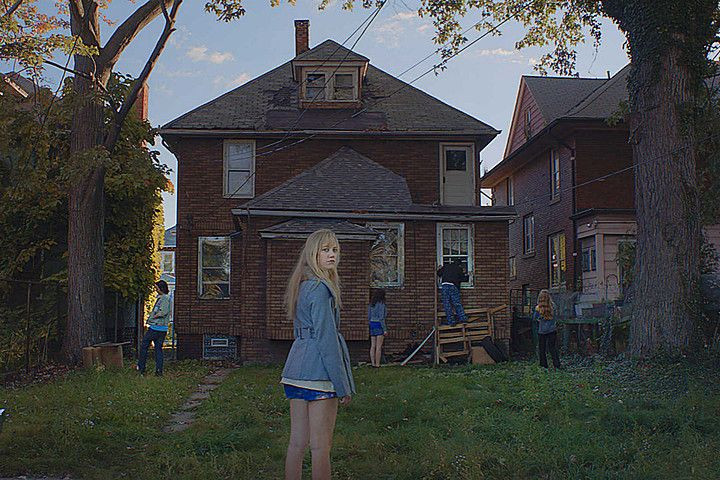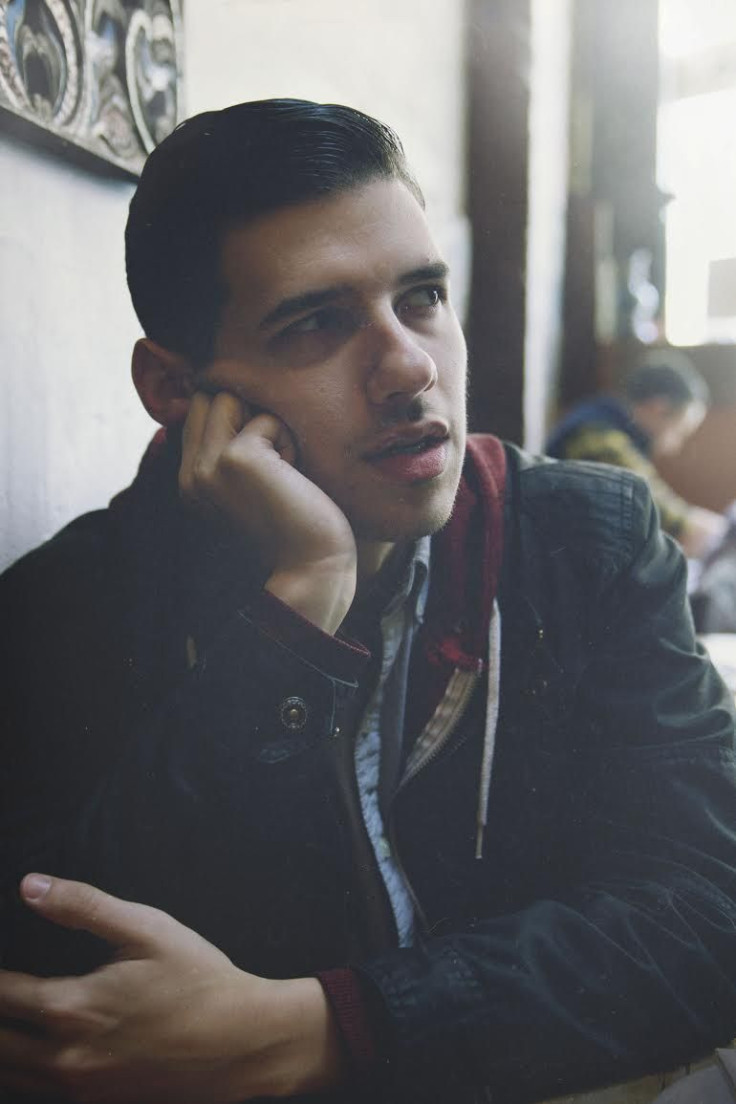'It Follows' Has An Amazingly Creepy Score: Interview With Composer Rich Vreeland Aka Disasterpeace

"It Follows," David Robert Mitchell's ("The Myth of the American Sleepover") new horror flick about a teenage girl (Maika Monroe) beset by a series of zombie-like figures who begin to follow her after she has sex with her new boyfriend, has been hailed as the coming of a new golden age of horror movies. Alongside critical accolades for the film's stylish reinvention of classic horror movie tropes are rave reviews for its soundtrack, which was scored by Staten Island, New York, native Rich Vreeland, aka Disasterpeace.
Vreeland, a 28-year-old composer who also creates music for video games ("Fez"), matches the unsettling effect of the film's hard-to-place era (1970s? 1980s?) by paying homage to the scores of classic horror movies like John Carpenter's "Halloween." In a Reddit AMA ("Ask Me Anything"), director Mitchell explains that he had many conversations with Vreeland about the kind of "bold, electronic score" he wanted the film to have, but ultimately, the amazing score is on the composer: "I would attribute it to his talent."
Vreeland talked to International Business Times from New Zealand on what it's like scoring a horror film, which is not a genre he has been into -- at least until "It Follows."
International Business Times: Were you always into music?
Rich Vreeland: I've always been musically inclined — I used to rap and slap out rhythms on various surfaces as a kid, and took up guitar while in high school.
IBTimes: What kind of music have you made?
Vreeland: Detective noir, orchestral marches, southern rock, progressive metal, and a whole lot of electronic music. I started out writing nü metal jams and discovered 8-bit music as a teenager. I found it was a lot easier to iterate and get my ideas out there fast, so I shifted my focus away from recording.
IBTimes: Did you know you wanted to score films? "It Follows" is your first – how did it happen?
Vreeland: I've been curious to try it for a while. David played FEZ, a game I scored back in 2012. He reached out to me afterwards to work on his film.

IBTimes: What does a good movie score have to do? Scoring a film is really an underappreciated art. What are your favorite film scores?
Vreeland: A score serves to support its film. There are many ways to do that. I think for "It Follows," I tried to complement the understated tone of the film by creating a really bombastic score and playing up the director's emotional intent. Sometimes a score exists in stated opposition to the visuals, and that creates a certain effect as well. One of my favorite scores is actually "No Country for Old Men." That film is so quiet and the music is so barely there, if not there at all, and I think that really serves the film extraordinarily well in establishing a bleak, suspenseful tone.
IBTimes: Music can get under your skin in a way that almost trumps the visual. How do you work with someone in a visual medium to realize their film, and what was your process with director Mitchell? What were his directives?
Vreeland: David gave me complete freedom to explore sounds and ideas. That said, I did work from a temp score in the interest of time. (A temp score is a temporary score before the film's release, made up of reference material and is used to get a feel for what the final score will feel/sound like.) I was fortunate in that the temp score was really well made, and I agreed with the general intent and placement of beats, and so forth. It made the whole process pretty smooth, especially given our limited time frame to score the film.
IBTimes: Part of what makes “It Follows” so gripping -- and is part of its horror -- is its use of anachronistic aesthetic details in a setting that’s hard to place, which seemed to happen in the score, too. It was uncannily familiar but hard to place. What horror film scores inspired it?
Vreeland: Definitely inspired by the general sound of horror from the '70s and '80s, which I couldn't really pinpoint, not being a huge proponent of horror. But we used a temp score that referenced music from the likes of John Carpenter, Penderecki and John Cage. I've also been a fan of [the band] Goblin for a while, so I think some of my ideas about what horror music is comes from those places.
IBTimes: And did you try to pay homage to those film scores or tweak it a bit for contemporary tastes ?
Vreeland: I never think directly about "is this contemporary" or not. It's all about feel for me. There is a stabbing sound that carries through the film that is a direct reference to [Hitchcock's] "Psycho." It kind of sounds like "REE! REE! REE!" That was the strongest reference I had to horror music in my brain. That seemed like a reasonable place to start. I also took certain ideas, like the aleatoric string motions of pieces by Penderecki and tried to translate that to the synthesizer.
That said I think there are some unique sounds in the film. I tried to mimic the setting of many scenes, creating sounds that turn into car engines, or the sound of crickets from hell. Those are quite fun to try and design. I also created a special kind of rumble that is used throughout the film that has a warm, distorted noisy quality to it.

IBTimes: Are you a fan of the horror movie genre?
Vreeland: In a manner of speaking! I've avoided horror films for the most part, but I think this whole experience has created a new interest for me. As a musician, the horror form has a lot of room for creating wild sounds and music, and I find that quite fun.
I never liked scary movies. I avoided them growing up and never got back on the wagon. So I would say I don't really have a favorite. I think I'll have to go back and start watching some of the classics!
IBTimes: What are you working on now?
IBTimes: Right now I'm in New Zealand working on a music system for a game about subways. Next I'll be heading home to finish music for a guest episode of Adventure Time, and then diving into a Miyazaki-inspired videogame called Hyper Light Drifter.
© Copyright IBTimes 2024. All rights reserved.






















